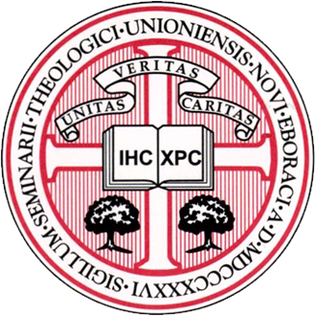This article should be divided into sections by topic, to make it more accessible.(July 2019) |
This article needs additional citations for verification .(September 2014) (Learn how and when to remove this template message) |
Religious studies is the academic field of multi-disciplinary, secular study of religious beliefs, behaviors, and institutions.
- Edwin David Aponte
- Raymond Apple, Australian Rabbi, writer on Jewish, interfaith and freemasonic issues
- Karen Armstrong, author of A History of God
- Miguel Asín Palacios, Spanish Arabist, work on the mutual influence between Christianity and Islam
- Robert Baker Aitken, author of numerous academic books on Zen Buddhism
- Reza Aslan, author of Zealot: The Life and Times of Jesus of Nazareth , professor of creative writing at the University of California, Riverside
- Edmond La Beaume Cherbonnier, professor and scholar, author of Hardness of Heart (1955)
- Catherine Bell, ritual studies scholar
- Herbert Berg, scholar of Islamic origins
- Peter Berger, author of The Sacred Canopy
- Pascal Boyer, author of Religion Explained: The Evolutionary Origins of Religious Thought
- Joseph Epes Brown, author of The Sacred Pipe and Teaching Spirits: Understanding Native American Religious Traditions
- Rudolf Bultmann
- Frank G. Carver
- John Corrigan, co-author of Religion in America, editor of the "Chicago History of American Religion" book series (University of Chicago Press)
- Frank M. Cross, emeritus professor Harvard Divinity School, interpreter of the Dead Sea Scrolls
- Ioan P. Culianu, author of The HarperCollins Concise Guide to World Religions and Out of This World
- Miguel A. De La Torre
- Arti Dhand, associate professor at the University of Toronto, Department for the Study of Religion [1]
- Wendy Doniger, (formerly published as Wendy O'Flaherty) is a leading researcher in Hinduism among other topics on religion.
- Émile Durkheim, author of The Elementary Forms of the Religious Life , a seminal work on sociology of religion
- Diana L. Eck
- Bart Ehrman, author, and James A. Gray Distinguished Professor of Religious Studies at the University of North Carolina at Chapel Hill
- Mircea Eliade, author of The Sacred and the Profane and History of Religious Ideas, vol.I-III
- Steven Engler, Canadian scholar of religion
- Desiderius Erasmus
- Carl W. Ernst, specialist in Islamic studies, author of Sufism: An Introduction to the Mystical Tradition of Islam
- Edward Evan Evans-Pritchard
- James George Frazer, author of The Golden Bough
- Sigmund Freud, author of Totem and Taboo , The Future of an Illusion , and Moses and Monotheism
- Rajmohan Gandhi, author of Revenge and Reconciliation
- Arnold van Gennep
- Anthony Giddens
- René Girard, whose theological works include Things Hidden Since the Foundation of the World
- Stephen D. Glazier, editor of The Encyclopedia of African and African American Religions
- Richard Gombrich
- Justo Gonzalez, author of The Story of Christianity and a leading figure in Hispanic theology
- Wouter Hanegraaff, author of New Age Religion and Western Culture: Esotericism in the Mirror of Secular Thought
- Ishwar C. Harris
- Nathan O. Hatch, author of "The Democratization of American Christianity"
- Friedrich Heiler
- Steven Heine, scholar of East Asian Buddhism, especially Zen and Dogen
- Susan Henking, scholar of religion, gender and sexuality, and president of Shimer College
- Peter L Hobson, author of The Hermeneutics of Followship: Relocating Narratives of Discipleship
- Zora Neale Hurston, author of Mules and Men and Hoodoo in America
- Ada Maria Isasi-Diaz
- William James, author of The Varieties of Religious Experience
- Grace Jantzen
- Carl G. Jung
- Klaus Klostermaier
- Adam Kotsko, author of Zizek and Theology and The Politics of Redemption, and translator of Agamben
- Hans Küng, Catholic theologian, author of Tracing the Way. Spiritual Dimensions of the World Religions
- Gerardus van der Leeuw
- Peggy Levitt
- Bruce Lincoln (University of Chicago), author of Holy Terrors: Thinking about Religion after September 11, Theorizing Myth: Narrative, Ideology, and Scholarship and Discourse and the Construction in Society
- Philip Lindholm
- Bronislaw Kaspar Malinowski
- Martin E. Marty (University of Chicago), author of the series Modern American Religion, editor of The Fundamentalism Project
- John Macquarrie, Christian Existentialist and Systematic Theologian
- Russell T. McCutcheon
- Josef W. Meri
- George Foot Moore, scholar and theologian, author of History of Religions (two wolumes – 1914, 1919) and Judaism (two volumes, 1927)
- Max Müller, editor of Sacred Books of the East
- Seyyed Hossein Nasr, author of Islam: Religion, History, and Civilization
- Rudolf Otto, author of The Idea of the Holy
- Elaine Pagels, author of The Gnostic Gospels
- Christopher Partridge, author of The Re-enchantment of the West
- Geoffrey Parrinder, former professor at King's College London and author of What World Religions Teach Us (1968)
- F. E. Peters, Professor at New York University and author of numerous books on Christianity, Judaism and Islam
- Stephen Prothero, Professor at Boston University and author of "American Jesus"; "Religious Literacy"; and "God Is Not One."
- Roy Rappaport
- Olivier Roy
- Arne Runeberg (1912–1979), Finnish sociologist, anthropologist and linguist
- Annemarie Schimmel, author of Mystical Dimensions of Islam
- Wilhelm Schmidt
- Arvind Sharma, author of Women in World Religions
- Christian Smith, author of Soul Searching: the Religious and Spiritual Lives of American Teenagers
- Huston Smith, author of The World's Religions
- Jonathan Z. Smith (University of Chicago), author of Map is Not Territory; Imagining Religion: From Babylon to Jonestown and To Take Place: Toward Theory in Ritual
- Wilfred Cantwell Smith
- William Robertson Smith, Scottish theologian, early work in the "higher criticism" of the Bible
- Ninian Smart, author of Dimensions of the Sacred
- Nathan Söderblom
- Rodney Stark
- Michael Stausberg
- John Shelby Spong, author The Sins of Scripture: Exposing the Bible's Texts of Hate to Reveal the God of Love and other works
- Einar Thomassen
- Toulmin, Joshua (1740–1815), English radical Dissenting minister
- Edward Burnett Tylor
- Joachim Wach
- James Webb, author of The Occult Underground and The Harmonious Circle
- Max Weber
- Christian K. Wedemeyer
- Wesley Wildman
- Linda Woodhead, MBE. Director of The Religion and Society Programme
- Zakir Naik
- Heinrich Robert Zimmer, Indologist, author of Philosophies of India and Myths and Symbols in Indian Art and Civilization
- Volker Zotz
- Ghil'ad Zuckermann, linguist, revivalist, scholar of language, religion and nationhood








